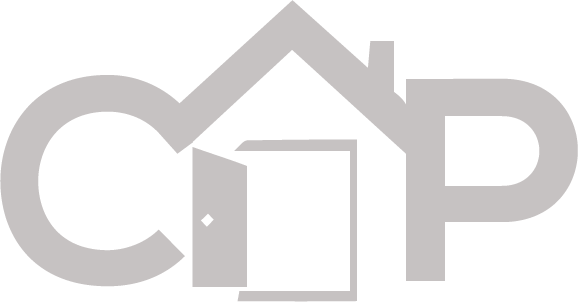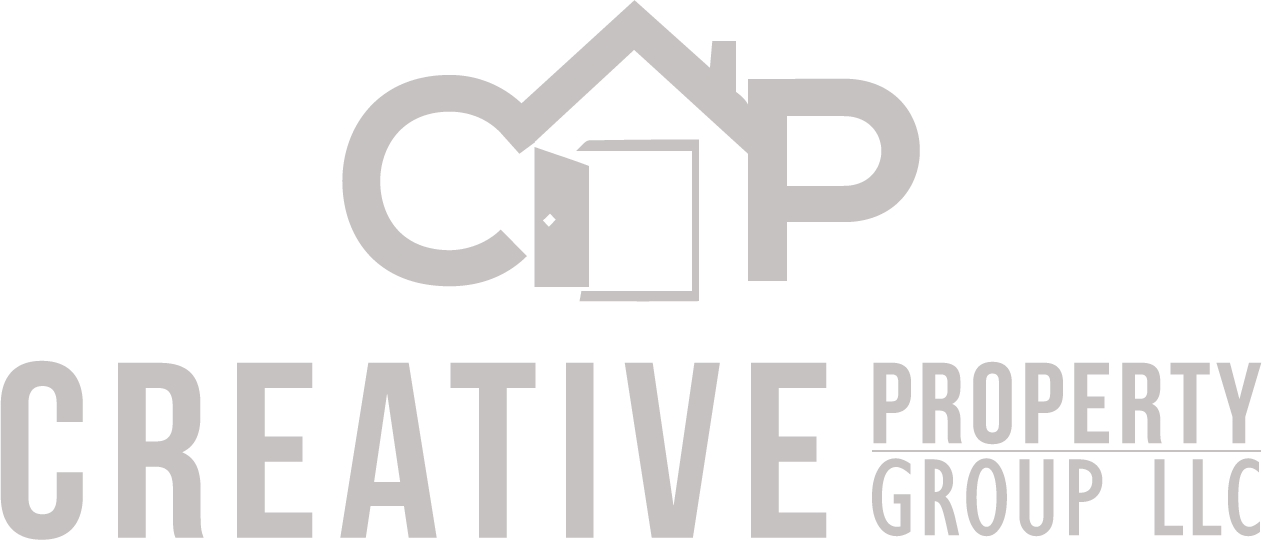8 Expert Checklist For Home Buying

Buying a home is a significant milestone in many people’s lives. It is often seen as the culmination of hard work and a step towards personal and financial stability. However, the process can be daunting. It has many steps involved—from assessing financial readiness to finally closing on your dream home. The complexity of the journey can leave many prospective buyers feeling overwhelmed and questioning where even to begin.
This is where our Ultimate Home Buying Checklist comes into play. Designed to simplify the process, this guide breaks down each step into manageable tasks to keep you well-prepared and informed at every step. Whether you’re a first-time buyer or looking to navigate the market again, this checklist will serve as your roadmap. Continue reading so you can gain clarity and confidence as you move closer to securing the keys to your new home.
1. Assess Your Readiness
Understanding your readiness to buy a home involves more than just a desire to own property. It’s a comprehensive evaluation of your financial stability, credit health, and personal circumstances. This initial step is crucial as it sets the tone for a manageable and successful journey towards homeownership. It ensures that you embark on this path with a clear understanding of your capabilities and constraints.

To begin your assessment, start by checking your financial stability and dive deep into your finances. Compare your monthly income against monthly debt payments to determine your debt-to-income (DTI) ratio. This evaluation helps ensure you can comfortably afford the monthly mortgage payments without overstretching your budget. Regular use of mortgage calculators can provide a realistic view of what you can afford. It aids you set a practical budget early in the process.
Then, take a look at your credit health. The condition of your credit score directly influences your mortgage eligibility and the interest rates you qualify for. Begin by obtaining your credit report from the major credit bureaus. Scrutinize it for any inaccuracies and take steps to dispute errors. To improve your credit score, you need to pay down all your existing debt. It is also essential that you maintain a history of on-time bill payments. These efforts can significantly impact your ability to secure favorable mortgage rates and are integral to proving your financial readiness.
Lastly, check your emotional and lifestyle readiness. Consider your career stability and any potential life changes on the horizon. For instance, couples might be working on their family planning. If you’re single, are you seeing yourself relocating? Remember that home ownership is a long-term commitment beyond financial investment. Your readiness to handle these responsibilities and financial commitment are key indicators that you’re prepared to proceed with the home buying process.
Incorporating these considerations into your initial assessment prepares you financially. It also helps you align your personal life and goals with the responsibilities of homeownership. This approach ensures you’re fully prepared to navigate the complexities of buying a home. Bear in mind that making informed decisions can lead to a fulfilling outcome.
2. Plan Your Budget
Planning your budget is a pivotal step in the home-buying process. Your budget plan will serve as the blueprint for your financial journey toward homeownership. But when you’re working on your plan, make sure you allot enough time for this. You need to meticulously evaluate your finances to establish a realistic and sustainable spending plan. This step is about balancing your dreams of homeownership with the practical aspects of your financial health and monthly obligations.

To successfully create a sound budget plan, make sure that you have a clear understanding of your spending. Thoroughly analyze your monthly income against your expenses. This includes not just your debt payments but also your living expenses, savings, and discretionary spending. Use budgeting apps or spreadsheets to record your income and expenses. This can help identify areas where you can cut back to save more towards your down payment. The aim is to identify how much you can comfortably allocate towards monthly mortgage payments without compromising your lifestyle or financial security.
Read also: 5 Ways To Improve Your Finances
Once you know your cash flow, set up automatic transfers to a savings account dedicated to your down payment and closing costs. Treating your savings like a recurring expense can help you steadily build the necessary funds. Consider side hustles or passive income streams that can boost your savings without drastically altering your lifestyle. Remember, owning a home isn’t just about covering the purchase price. It’s also about preparing for property taxes, homeowners insurance, and maintenance costs.
Another tip is to check your debt-to-income ratio or DTI. It is a financial measure that compares an individual’s monthly debt payments to their monthly gross income. Your DTI ratio is a critical factor that lenders use to assess your mortgage eligibility. It compares your monthly debt payments to your gross monthly income, with most lenders prefer a 43% or lower ratio. To improve your DTI, consider strategies like paying down high-interest debts or increasing your income. A healthier DTI boosts your chances of mortgage approval and affects the terms and rates offered.
As you prepare your budget, do a long-term planning. Factors in the long-term costs associated with homeownership include property taxes and maintenance expenses. These ongoing costs should be accounted for in your budget to ensure you’re prepared for the initial purchase and the lifetime of homeownership. Setting aside funds for unexpected repairs and regular maintenance can prevent financial strain in the future.
3. Save For Downpayment
Saving for a down payment is a crucial step in the home-buying journey. It acts as the cornerstone of securing your future property. This stage is about accumulating the funds necessary to make your homeownership dream a reality. While the task may seem daunting, it is achievable with strategic planning and disciplined saving.

Begin by understanding down payment requirements. The size of your down payment significantly influences your mortgage terms including interest rates and the need for private mortgage insurance (PMI). A standard benchmark is 20% of the home’s purchase price. This percentage can exempt you from PMI and potentially secure better mortgage rates. However, many first-time home buyers opt for lower down payments through programs offering conventional loans with down payments as low as 3-5%.
Next, set a savings goal. Start by determining the price range of homes you’re interested in. Use this to calculate your target down payment amount. Make budget adjustments when necessary. Again, you need to review your monthly spending to identify areas where you can cut back. This might mean reducing discretionary expenses or finding more cost-effective alternatives for essential services. Remember, saving for a down payment is not just about reaching a percentage of the purchase price. It’s also preparing for closing costs and moving expenses.
Lastly, leverage assistance programs offered by the government. Research down payment assistance programs available in your area. Many programs offer grants or low-interest loans to help first-time home buyers meet down payment requirements. Eligibility often depends on income levels, the purchase price, and the property’s location.
Read also: 5 Tips To Help Secure Financing
4. Get Mortgage Preapproval
Securing a mortgage preapproval marks a significant milestone in your journey toward homeownership. It clarifies your buying power and positions you as a serious buyer in the eyes of sellers, especially in competitive markets. A preapproval involves a mortgage lender assessing your financial background to determine how much they’re willing to lend you based on your income, credit score, employment history, and other debt obligations.
Securing a mortgage preapproval involves a series of steps that are crucial for moving closer to purchasing a home. Start by gathering the necessary documents. This preparation includes collecting your tax returns, bank statements, recent pay stubs, and proof of assets. Such thorough preparation streamlines your interaction with lenders.

Next, pay attention to your credit score. Lenders use this score to evaluate your financial history and reliability. Knowing your score in advance allows you to correct any errors. This proactive step can improve your chances of securing a better interest rate. While lenders have their benchmarks for minimum credit scores, a higher score usually means more favorable rates.
Finally, research your options for mortgage lenders. This search should include traditional banks, credit unions, and online mortgage companies. Each offers different rates, fees, and loan products. You can find the best fit for your financial situation by comparing these options. This careful comparison ensures you choose a mortgage that aligns with your financial goals, paving the way for a successful home purchase.
Additional tips for a smooth preapproval process:
- Maintain Financial Stability. Avoid making significant financial changes or large purchases before and during preapproval. Stability in your income and expenses reassures lenders of your reliability.
- Understand Your Limits. Just because you qualify for a certain amount doesn’t mean you should spend that much. Consider your lifestyle and other financial goals when deciding how much to borrow.
- Consider Multiple Preapprovals. Applying for preapproval from several lenders within a short period counts as a single inquiry on your credit report. This allows you to shop for the best terms without negatively impacting your credit score.
5. Find Your Home
The journey to finding your home is one of the most exhilarating parts of the home-buying process. It transforms your aspirations into tangible options. However, it requires a blend of introspection about your desires and practical exploration of the market.
To limit your options, you need to define your criteria. Identify what you need in a home versus what you desire. Essentials might include the number of bedrooms and bathrooms, while desires could cover aspects like a large kitchen or a specific style. Location plays a critical role, too. Consider the safety, schools, amenities, and commute times of your preferred neighborhoods. Understanding the interplay between your budget and the property values in these areas ensures your search is grounded in reality.
You may also hire a real estate agent. Realtors can significantly streamline your search. They bring an in-depth knowledge of the market including insights into homes that haven’t been listed publicly yet. Their expertise in navigating competitive markets and negotiating offers can prove invaluable.

You may also utilize online resources and platforms when looking for your home. They offer a wealth of information on listings, neighborhoods, and market trends. They can refine your search parameters and keep you informed. Your house-hunting process becomes more focused and efficient.
Additional house hunting tips:
- Actively visit homes to know how they feel in person. While online listings provide a good starting point, being physically present in a space can reveal much more about whether it fits you.
- Keep detailed records of each property you visit. Then, compare and contrast them later. This can include taking photos and noting how each home meets your criteria.
- Flexibility is key. The perfect home, in every aspect, is rare. Prioritize your list of needs and wants to make compromises that don’t sacrifice your most important criteria.
6. Make An Offer
The next step is to make an offer after finding a home that meets your criteria and falls within your budget. This critical phase involves strategic planning and setting the negotiation stage with the seller. A well-crafted offer can make the difference between securing your dream home and having to continue your search.
When making an offer on a home, understanding the process is key to crafting a fair and appealing proposal to the seller. Start by determining a fair offer price. This involves carefully analyzing the property’s value. Consider the current market conditions, the condition of the home itself, and the prices of similar homes in the area. Your real estate agent is invaluable during this phase. They can offer expert insights into the local and competitive housing markets to help you arrive at a reasonable figure.

Next, it’s important to include contingencies in your offer. These might cover mortgage approval, a satisfactory home inspection, and an appraisal that meets or exceeds the purchase price. Such conditions offer you protection. It also grants you the flexibility to renegotiate terms or even back out of the deal without facing penalties should any significant issues come to light.
Finally, deciding on your earnest money deposit amount is a critical step. Typically ranging from 1-3% of the purchase price, this deposit underscores your commitment to the transaction. It’s a key part of your negotiation strategy which signals to the home seller that you are serious about proceeding with the purchase. Together, these elements form the foundation of your offer, setting the stage for a successful negotiation.
Once you submit your offer, the seller will review it. He/she can accept, reject, or make a counteroffer. Your real estate agent will guide you through this process and assist you in understanding the implications of each decision.
If a counteroffer is presented, evaluate it carefully. Discuss with your realtor whether to accept the new terms, make another counteroffer, or walk away. This decision should align with your budget and how much you want the property.
Remember that making an offer is a delicate balance between showing you are a serious and qualified buyer and getting a fair deal on the property. With the right preparation and a knowledgeable real estate agent, you can confidently navigate this step.
Here are our additional tips to make a strong offer:
- Act Promptly. In competitive housing markets, speed is of the essence. Be ready to make an offer when you find a suitable property.
- Personalize Your Offer. Consider including a letter to the seller explaining why you fell in love with the home. This can sometimes give you an edge, especially in multiple offer situations.
- Be Prepared to Negotiate. Rarely is the first offer accepted outright. Be open to counteroffers and use them to negotiate terms that work for you and the seller.
7. Pre-Purchase Investigation
The pre-purchase investigation, also known as due diligence, is a critical phase in the home buying process. It ensures that you’re making a well-informed decision about your potential new home. This stage involves thoroughly examining the property to uncover any issues that could affect its value or your enjoyment. Here, you’re not just looking at the surface appeal. You’re also delving into the structural and legal details that underpin a sound investment.

One of the first steps in your pre-purchase investigation should be to commission a comprehensive home inspection. A qualified inspector will assess the property for structural problems, safety issues, or maintenance needs. They’ll check everything from the foundation and roofing to the plumbing and electrical systems. While minor issues are expected, be particularly alert to major concerns that could require costly repairs. The findings of this inspection can inform your decision to proceed, renegotiate the purchase price, or request repairs before closing.
Another key component is the home appraisal. This provides an independent evaluation of the property’s value. Lenders require appraisals to ensure the home is worth the purchase price and the amount they’re lending you. An appraisal that comes in below the agreed purchase price can affect your loan terms or require renegotiation of the sale price.
Moreover, conducting a title search is essential. It guarantees that no legal issues with the property’s ownership history could affect your rights as the new owner. This search can reveal any outstanding liens, easements, or other encumbrances on the property. Title insurance offers protection against future claims that could arise from past ownership disputes or documentation errors.
Beyond the property itself, consider the surrounding area. Research the neighborhood for its safety, amenities, and overall livability. Environmental assessments are also crucial. This is particularly important if the property is in an area known for natural hazards or contamination issues.
Additional tips for a thorough pre-purchase investigation:
- Prioritize The Inspection. Even in hot markets, resist the temptation to waive the home inspection. The insights it provides are invaluable for making an informed purchase decision.
- Review Appraisal and Inspection Reports Carefully. Understand the implications of these reports. If there are concerns, discuss them with your real estate agent to determine the best course of action.
- Consult with Experts. Don’t hesitate to seek advice from legal professionals or specialists if complex issues arise during your investigation.
The pre-purchase investigation is your safeguard against unforeseen problems and potential regrets. By approaching this phase with diligence and attention to detail, you ensure that your investment is sound. Most importantly, your future home aligns with your expectations and needs.
8. Closing On Your Home
Closing on your home is the final and perhaps most anticipated step in the home buying process. It marks the moment when the property officially becomes yours. This phase involves finalizing the mortgage, transferring the title, and handling various legal and financial details. While it’s a time for celebration, it’s also crucial to approach closing with preparedness and attention to detail to ensure everything goes smoothly.
Closing, also known as settlement, is when you and the seller sign all the necessary documents to complete the transaction. Here, the mortgage lender releases the funds so you can purchase the home. Key documents you’ll encounter include the mortgage agreement, the deed of transfer, and the closing disclosure. The closing disclosure outlines your loan terms, monthly payments, and closing costs.
Then, prepare for closing. This means reviewing all documents in advance and understanding the terms of your mortgage. It also involves being clear on what payments are due at closing including down payment and closing costs. Ensure you have the necessary funds in the right form, typically a cashier’s check or wire transfer.

Before closing, you’ll have the opportunity for a final property walkthrough. Use this time to ensure all agreed-upon repairs have been made and the home is in the condition specified in the purchase agreement. This is your last chance to address any issues before the property is yours.
Additional tips for successful closing:
- Review Your Closing Disclosure Early. Lenders must provide you with a closing disclosure at least three days before closing. This document details your loan terms, final closing costs, and other transaction details. Review it carefully for accuracy and ensure you understand all the charges.
- Ask Questions. If anything is unclear during the closing process, don’t hesitate to ask your real estate agent, lender, or closing attorney for clarification. It’s important that you fully understand every document you sign.
- Prepare for Unexpected Delays. Sometimes, issues can delay closing. For instance, last-minute document requests from your lender or problems found during the final walkthrough. While frustrating, these delays are often resolvable, so staying flexible and patient is important.
Closing on your home is the culmination of your home-buying journey, but it’s also a complex process that demands careful preparation. By staying informed, organized, and engaged, you can confidently navigate closing.
Wrapping Up
Buying a home marks a significant milestone in your life. It’s a journey full of learning and making decisions. In this blog, we covered essential steps that will help you navigate home buying process with ease. Remember, preparation and knowledge are your best tools. Everything we shared with you can be your guide to turn challenges into stepping stones towards owning your dream home.
Ready to buy your dream house? Let Creative Property Group help you in this exciting journey. Our team of experts will guide you every step of the way so you can have a smooth and successful home-buying experience. Contact us today to learn how we can make your dream home a reality.

